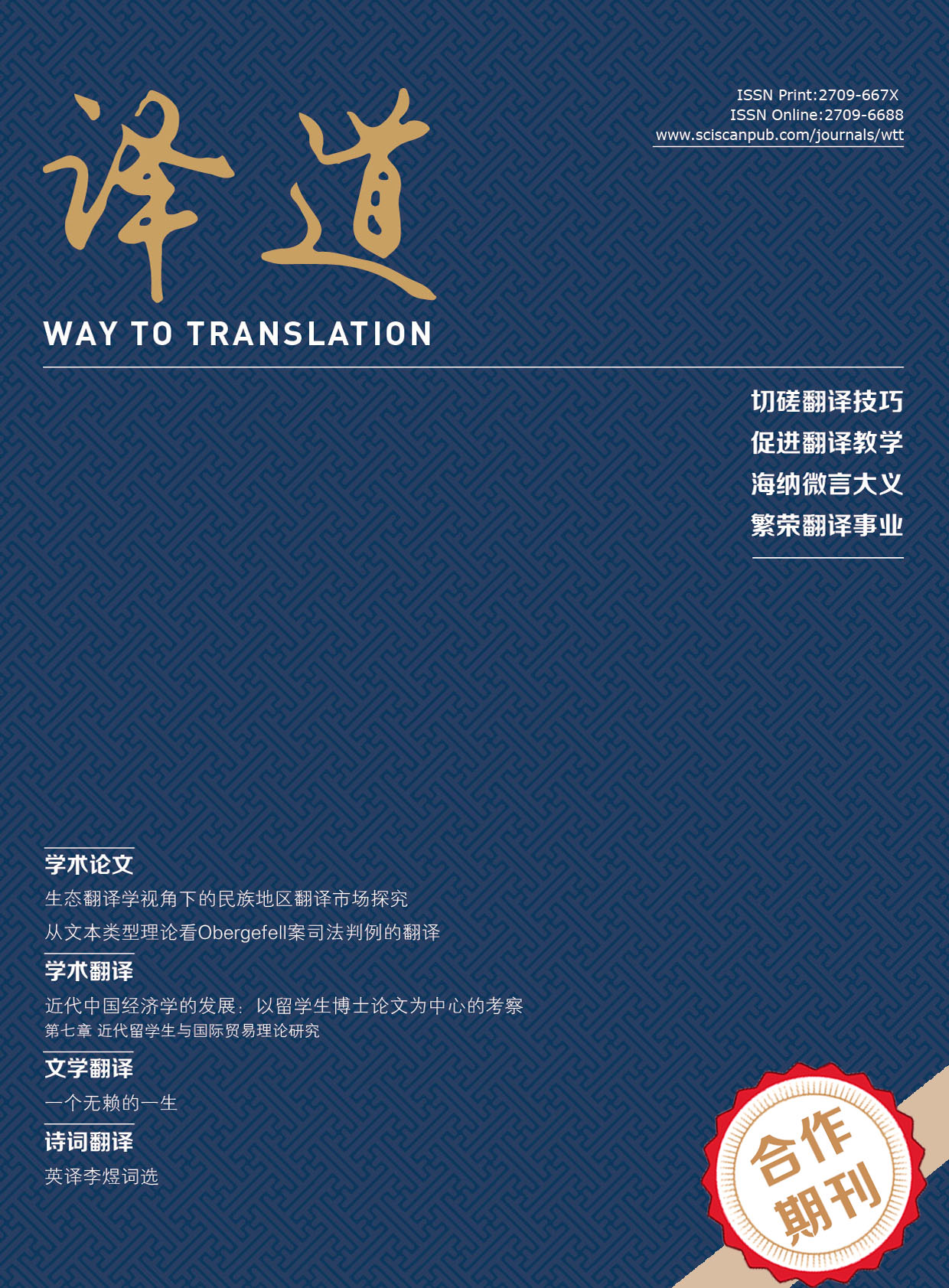免费订阅世刊出版平台最新发表资讯
象似性视角下译者主体性的认知解读 * ——以《红楼梦》章回目录英译为例
Cognitive Interpretation of Translator’s Subjectivity from the Perspective of Iconicity: Based on English Versions of Chinese Chapter Titles in Hong Lou Meng
- 作者: 杨永霞
-
单位:
四川外国语大学英语学院,重庆
- 关键词: 译者主体性;象似性;翻译过程;章回体标题
- Translator’s subjectivity; Iconicity; The translation process; The chapter titles
- 摘要: 翻译是涉及作者、译者、读者三方的实践活动。本文首先基于认知语言学的象似性理论剖析了译者的主体性问题,认为译文的产出需经过原文识解和译文实践两个过程:译者在原文识解阶段,其主体性得以隐藏,即尽可能多地识解原文本的语义和源语象似性;在翻译实践阶段,译者的主体性得以凸显,即译者会选择靠近源语象似性的译法,或是采用目的语象似性的译本。然后本研究以《红楼梦》章回体标题英译本为例,探究了译者主体性的实现路径,并得出以下结论:杨宪益的译文是异化的代表,其主体性凸显不明显,而霍克斯的译文体现归化性,其主体性凸显明显。
- Translation is a practical activity involving the author, the translator and the reader. Based on the iconicity theory of Cognitive Linguistics, this paper first analyzes the translator’s subjectivity and argues that there are two processes in the translation, namely, the construal of source text and translation practice. In the process of construal, the subjectivity of the translator is hidden to highlight the author’s text in order to construe the semantics and source language iconicity of the source text as much as possible; in the process of practice, the translator’s subjectivity is prominent, so the translator adopts the translation method which is iconic to the source language or the target language. Based on the English versions of the chapter titles in Hong Lou Meng and the iconicity theory, this paper explores the realization of the translator’s subjectivity and concludes that Yang Xianyi’s translation is the representative of alienation, and its subjectivity is not salient, while Hawkes’ translation embodies domestication which shows much stronger subjectivity.
- DOI: https://doi.org/10.35534/wtt.0103003
- 引用: -














